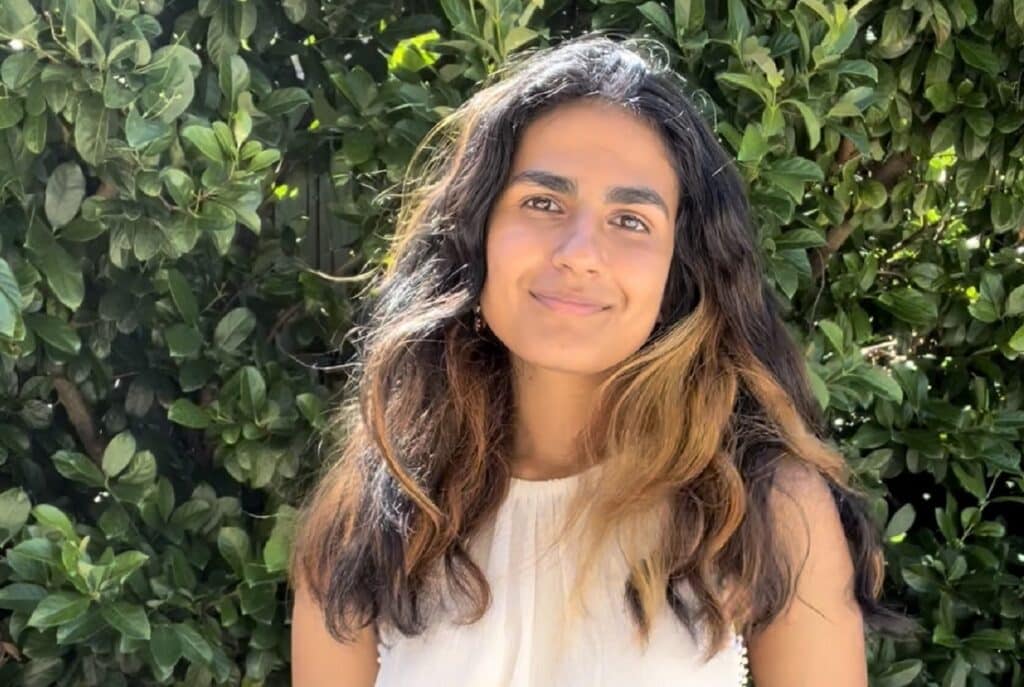I have suffered from an eating disorder since I was 14, but it took me years to get a diagnosis.
14-year-old, 15-year-old, and even 16-year-old me would have never believed that I did. I was an Indian Australian – only thin white girls could struggle with one. I had never been hospitalised – the only way to prove I had one. I never went to treatment – people around me were not concerned enough.
I could write you a thousand words on the things I’ve never experienced while living with an eating disorder that I thought I needed to be valid in my struggles.
In hindsight, I realise that my feelings were rooted in a lack of cultural competency in the healthcare system, the stigma around mental health in communities of colour and representations of eating disorders in mainstream media, which only showed me thin white girls who skipped meals. Even at my lowest, I ate every meal.
I remember craving validation from those around me. Please say “you’ve lost weight”, “you don’t eat much”, “you’re so disciplined”. But most importantly, I needed someone to say, “There is no concept of being ‘sick enough’. You’re struggling, and we can help.”
Even if it wasn’t explicitly in those words, I just wanted someone close to me to fully understand. And when they didn’t, I thought I would have to take another step to make my struggle more obvious.
It was as though their comprehension of what a mental illness was depended on how significantly the physical symptoms manifested.
I turned to the World Wide Web when I didn’t receive the validation I desperately wanted from people around me.
The internet gave me parasocial relationships with those in the depth of their ED, hours of watching videos titled ‘What I Eat in a Day’ to ‘My Mum chooses everything I eat today’ to ‘This is how you know if you’re struggling with an ED.’
I realised what I felt was “normal” for someone struggling. However, accepting I was struggling was something I never achieved. In hindsight, I can pin this down to three reasons.
First, there were rarely or never any women of colour talking about their experience, so I could never perceive a brown girl like me struggling with an ED.
Second, most of these videos were about their experience in the hospital or with their treatment plans, something I had no experience with.
Finally, most of these girls who documented their journey often featured their families in the video. At the same time, I could not even say, “I had an ED” to myself. I thought this meant that I was simply not ‘sick enough’ when, in reality, it was cultural stigma, a lack of representation and cultural competency in the healthcare system.
In my head, I had a criteria to fulfil to confirm I had an eating disorder.
Immediately, I felt set back being brown. I felt ungrateful and guilty for feeling what I felt, for acting how I did because I knew the struggles my family had faced as immigrants. It felt like I was tossing out of the way in their eyes what they see as vanity. But no matter how much I wanted to change, get better, or be less selfish, I felt so out of control and without validating my thoughts, I could not understand why I felt like this.
Every moment of every day, every video I watched, every meal I ate was a challenge to push myself to fulfil the items on my list. “Be skinnier than her”, and “make sure people feel concerned”.
It always felt like two steps forward and one step back. Feel isolated, feel seen. But it’s still not the same as them because of X, Y, Z.
I thought I was seeking attention, claiming my title as the angsty teen, when in reality I was a 14-year-old girl struggling to feel present and escape the grips of an all-consuming eating disorder.
The most difficult part for me was that even when I eventually saw medical professionals, I got no approval for what I felt.
The first person I saw told me I had thick hair, so I “was probably fine.”
In my final year of high school, with my grades slipping because of my ED and disappointment, not even the fact that I was not doing well was enough for me to go and tell my welfare adviser what was happening. Of course, I needed documentation to prove it. So after three years of failing to get a diagnosis, and being told my “employability would be affected” by this diagnosis, like a black mark on my record, my GP finally did what he should have done three years ago when I was first taken to see him. Soon after, I had to see a psychologist and was diagnosed with generalised anxiety disorder.
Two diagnoses and people around me still didn’t fully believe I struggled.
Eventually, you wake up and realise you cannot heal for anyone or because of anyone. No one knows the thoughts and feelings, and it does not matter whether they have been there for two weeks or two months. They exist, and you are allowed to seek help. Validation, for me, brought healing. I still have hard days, weeks, and months, where it’s frustrating to think that I still struggle with parts of an eating disorder at 21.
But there’s a big difference between the 14-year-old and 21-year-old girls struggling. The 21-year-old knows her struggles are real, and because of that, the support she has and seeks is not conditional on physical deterioration or isolation but is founded in her relationships with those around her. It’s not settling for glimpses of recognition when you hit rock bottom, but full acceptance and being asked how you wanted to be supported. Support when you feel validated is knowing that just because your “hair looks healthy”, it doesn’t mean everything is perfect.
If you take away one thing from this piece, I hope it is knowing that no matter how I looked physically, how many times I visited a doctor, and how many people commented on my weight change, I never felt validated in my struggles. It was really about seeing others who looked like me experience the same feelings, about creating support and ultimately recognising that I would never fulfil a criteria which was created by lies and stereotypes.
You’re valid in everything you experience, regardless of the actions of others.
If you need help or support for an eating disorder or body image issue, please call Butterfly’s National Helpline on 1800 334 673 or email [email protected]


